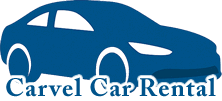
- how-to-start-a-car-rental-business-in-the-us
- ways-to-get-cars-for-your-rental-fleet
- pros-and-cons-of-each-car-acquisition-strategy
- real-case-how-one-owner-scaled-quickly
- choosing-the-right-sourcing-model-for-your-business
- carvel-car-rental-helping-you-succeed
1. How to Start a Car Rental Business in the US
Starting a car rental business in the U.S. can be a lucrative venture—but like any industry, success depends on smart planning, resourceful execution, and deep knowledge of your market. The first and most important step is acquiring a reliable fleet of vehicles. Understanding how to get cars for a car rental business is central to making your business scalable and profitable from day one.
Before you start sourcing vehicles, ensure you’ve registered your business, obtained the necessary state licenses, and sorted out insurance and liability requirements. The logistics are essential, but your vehicle acquisition strategy is what defines your capacity to grow, compete, and serve customers consistently.
2. Ways to Get Cars for Your Rental Fleet
2.1 Buying Cars Outright
This method gives you full ownership and control over your vehicles. You can purchase new or used vehicles depending on your startup capital. While buying gives long-term ROI, it requires a significant upfront investment and involves vehicle depreciation risks.
2.2 Leasing Vehicles
Leasing is a common method for car rental startups. It reduces upfront costs and spreads payments over time. Many leasing programs offer fleet packages tailored for rental businesses. Be sure to read the fine print on mileage restrictions and wear-and-tear policies.
2.3 Rent-to-Rent or Subleasing
This model involves sourcing cars from private owners or other businesses and subleasing them. It's a low-capital way to scale your fleet quickly but often comes with legal and insurance complexities. If you plan to go this route, consult a business attorney to ensure your contracts are airtight.
2.4 Partnering with Fleet Owners
Some rental companies grow fast by partnering with car dealerships or fleet investors. In this setup, you manage bookings and customer service while the partner provides vehicles and maintenance. It’s a symbiotic strategy if you want rapid growth without owning too many assets.
2.5 Auctions and Bulk Vehicle Deals
Government auctions, insurance company clearances, or fleet sales are a goldmine for budget-conscious entrepreneurs. The catch? You’ll need a good eye for value and probably a mechanic on call. The deals can be significant, but the risks are just as real.
3. Pros and Cons of Each Car Acquisition Strategy
3.1 Buying Cars
Pros: Total control, no usage restrictions, long-term asset.
Cons: High capital, fast depreciation, slow to scale.
3.2 Leasing Cars
Pros: Low upfront cost, newer vehicles, easy upgrades.
Cons: Mileage limits, long-term cost, lease-end fees.
3.3 Subleasing from Others
Pros: Fast fleet expansion, low entry barrier.
Cons: Complex contracts, limited control, liability risk.
3.4 Auction & Fleet Bulk Deals
Pros: Cost-effective, good for short-term rentals.
Cons: Older vehicles, hidden issues, no warranty.
4. Real Case: How One Owner Scaled Quickly
Take the example of Josh from Dallas, who started with just two sedans and a $10,000 loan. Instead of buying more cars outright, he used Turo to rent out cars on behalf of private owners. Within a year, he was managing over 15 vehicles with minimal capital. His key to success? Building strong partnerships and focusing on vehicle uptime.
Josh emphasized documentation, tracking every car’s usage and condition daily, and ensuring top-tier customer service. His story is proof that you don’t need a massive budget—you need a creative model and tight systems.
5. Choosing the Right Sourcing Model for Your Business
No one-size-fits-all solution exists when you're learning how to get cars for a car rental business. The best model depends on your budget, operational capacity, and long-term goals. If you're looking for fast scalability, subleasing and partnerships work well. For long-term value and branding, ownership offers control and consistency.
Be honest with yourself about the risk tolerance you have and how quickly you want to grow. Also, consider hybrid models—many successful rental businesses use a mix of owned, leased, and partnered vehicles to balance flexibility and control.
6. Carvel Car Rental Helping You Succeed
At Carvel Car Rental, we help aspiring and existing rental business owners get access to the most suitable vehicles, sourcing strategies, and partner programs in the market. Whether you're looking for reliable fleet vehicles, operational advice, or vetted vendors, we provide the connections and insights to make your business thrive.
Choosing the right car for your fleet isn’t just about availability—it’s about reliability, profitability, and customer satisfaction. Let Carvel Car Rental be your partner in making smart, sustainable decisions that lead to long-term success.







 AALAND AUTO RENTALS LLC.5.0 (44 reviews)
AALAND AUTO RENTALS LLC.5.0 (44 reviews) Budget Car Rental2.0 (102 reviews)
Budget Car Rental2.0 (102 reviews) Avis Car Rental3.0 (126 reviews)
Avis Car Rental3.0 (126 reviews) Dollar Car Rental - Oklahoma City - Will Rogers World Airport2.0 (73 reviews)
Dollar Car Rental - Oklahoma City - Will Rogers World Airport2.0 (73 reviews) Rental Cars at Romeoville Toyota5.0 (1 reviews)
Rental Cars at Romeoville Toyota5.0 (1 reviews) SIXT Rent a Car Los Angeles Downtown4.0 (961 reviews)
SIXT Rent a Car Los Angeles Downtown4.0 (961 reviews) Is American Express Car Rental Insurance Worth It?
Is American Express Car Rental Insurance Worth It? What is Supplemental Liability Insurance for Car Rental? Everything You Need to Know
What is Supplemental Liability Insurance for Car Rental? Everything You Need to Know Does Geico Cover International Car Rentals? What You Need to Know
Does Geico Cover International Car Rentals? What You Need to Know How to Extend Your Enterprise Car Rental: Easy Steps to Make the Process Seamless
How to Extend Your Enterprise Car Rental: Easy Steps to Make the Process Seamless How Far Is Car Rental From San Diego Airport? Tips for a Smooth Experience
How Far Is Car Rental From San Diego Airport? Tips for a Smooth Experience Is Expedia Car Rental Legit? A Comprehensive Review for Travelers
Is Expedia Car Rental Legit? A Comprehensive Review for Travelers